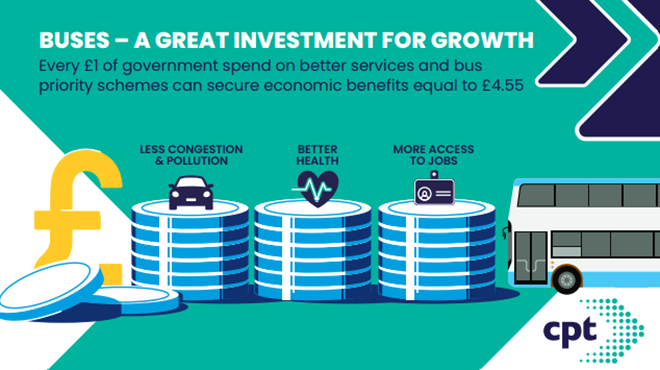T: 01822 851370 E: [email protected]
Visit RSN Survey about life in rural England to find out more.
The Economic Impact of Local Bus Services: A Significant Boost for Rural Communities

Last week, The Confederation of Passenger Transport (CPT) released a new report, "The Economic Impact of Local Bus Services," highlighting the considerable economic and social value that local bus services bring to communities across the UK. Launched last week in Derby, the report emphasises the critical role buses play, particularly in rural areas, and calls for continued investment to support and enhance these services.
 |
Key Findings from the Report
The report, prepared by KPMG, quantifies the vast economic impact of local bus services. It reveals that the bus sector contributes £11.3 billion to the economy annually, supporting 105,500 jobs directly and an additional 53,000 in the supply chain. The economic ripple effect of bus services extends far beyond the transport sector, with bus passengers contributing almost £40 billion in spending across the UK’s high streets, cafes, restaurants, and leisure destinations each year.
Specifically, for rural communities, the report underscores the significance of buses in providing critical access to services and supporting the local economy:
- Connectivity in Rural Areas: Many rural residents rely on buses as the only form of public transport, enabling them to access jobs, education, and essential services. Over 680 million journeys per year start in rural areas, where alternatives are often limited.
- Economic Impact: Rural bus passengers generate £7.1 billion in local economies through spending on retail, leisure, and commuting services. The availability of bus services also supports employment, with £1.6 billion in economic benefits from enhanced connectivity and affordable travel in rural areas.
- Social Benefits: Buses are crucial in reducing social isolation, promoting volunteer work, and providing access to healthcare, contributing £500 million in wider societal benefits in rural regions alone.
Wider Economic and Social Benefits
Beyond the direct financial contributions, buses deliver substantial environmental, health, and congestion-reduction benefits. For instance, reduced road congestion due to bus usage generates £600 million in savings annually. Health benefits, such as promoting more active travel and improving air quality, are valued at £2.8 billion per year.
The report also highlights that every £1 invested in bus priority measures can deliver up to £5 in economic benefits. This presents a compelling case for the government and local authorities to continue supporting and expanding bus services, especially in underserved rural areas where public transport is a lifeline.
Investment in Rural Bus Services
Given the importance of buses in rural regions, CPT's report advocates for targeted investment to enhance these services. It points to the success of demand-responsive transport initiatives, such as Wales' Fflecsi service, which operates flexible bus routes based on real-time demand. These innovative services are essential in geographically challenging areas where fixed routes are not viable, ensuring that rural residents can maintain vital connections to towns and cities.
Buses are more than just a mode of transportation; they are the backbone of many rural communities, providing access to essential services and stimulating local economies. The CPT's new report makes a powerful case for continued investment in rural bus services, highlighting their ability to deliver substantial economic, social, and environmental benefits.
Read the report in full HERE.
 |
Kerry Booth, Chief Executive, Rural Services Network
|



